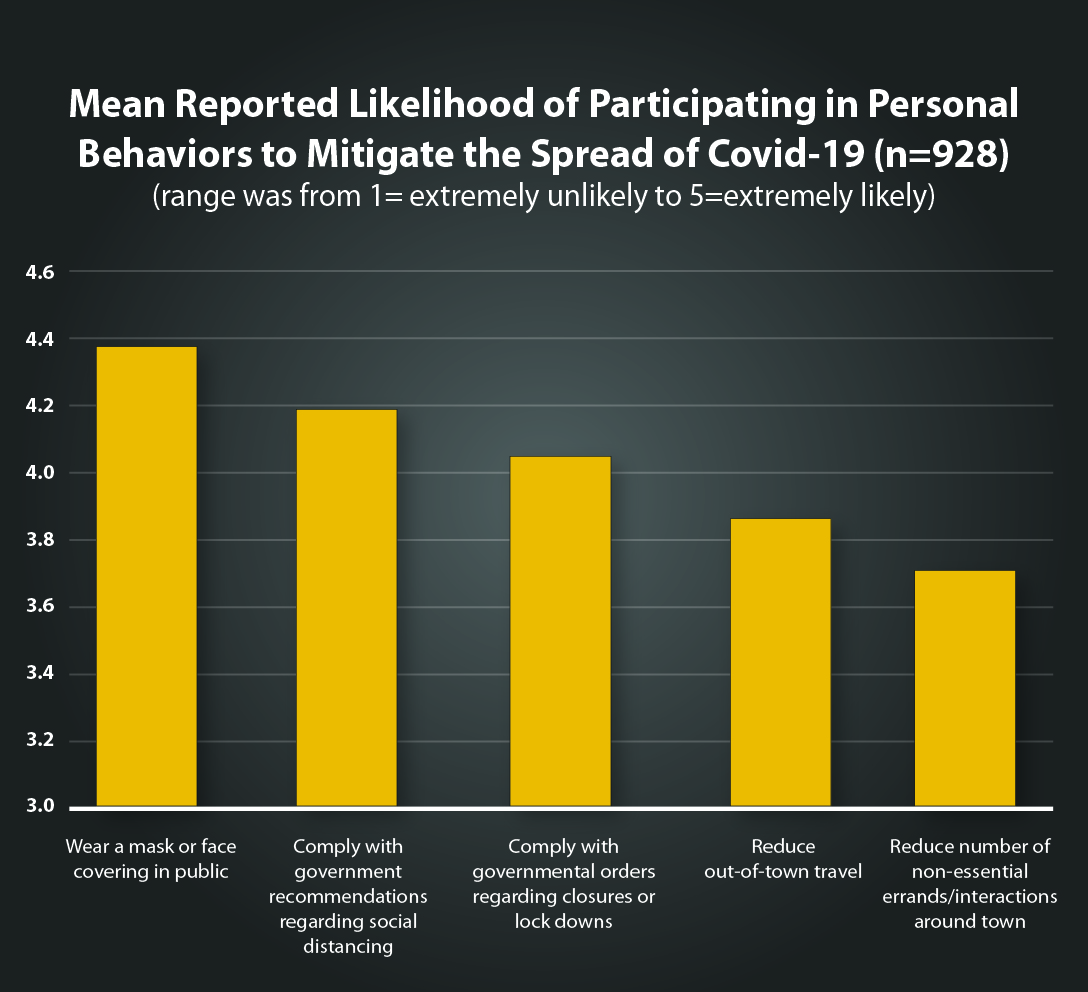Measuring our attitudes in the COVID-19 era
 Nicole Widmar, professor of agricultural economics, and Courtney Bir, assistant professor of agricultural economics at Oklahoma State University, surveyed nearly 1,000 households across the country in January to understand respondents’ attitudes toward the actions medical professionals suggest will keep people safe from the SARS-CoV-2 virus that causes COVID-19. They published preliminary data on Consumer Corner, a blog Widmar launched to discuss consumer research.
Nicole Widmar, professor of agricultural economics, and Courtney Bir, assistant professor of agricultural economics at Oklahoma State University, surveyed nearly 1,000 households across the country in January to understand respondents’ attitudes toward the actions medical professionals suggest will keep people safe from the SARS-CoV-2 virus that causes COVID-19. They published preliminary data on Consumer Corner, a blog Widmar launched to discuss consumer research.
Widmar and Bir rated respondents’ likelihood to participate in a practice on a scale of one (extremely unlikely) to five (extremely likely). While people expressed willingness to wear masks, socially distance and participate in other behaviors to mitigate the spread of COVID-19, vaccines may require more buy-in. “The major concern from these data is that about one-quarter of the population is opposed to getting a vaccine,” Widmar says. “That becomes a problem for reaching herd immunity.”
Herd immunity occurs when enough of a population is immune to a disease, often because it is vaccinated, and the disease cannot spread. The Center for Infectious Disease Research and Policy at the University of Minnesota suggests COVID-19 may take up to 70 percent for the population to gain herd immunity.
While 76 percent of respondents indicated they were likely to get a vaccine, Widmar cautions that her sample includes only those 18 or older. “Achieving herd immunity without a vaccine for children would mean that a far larger percentage of adults would need to be vaccinated,” Widmar says.
Purdue Agriculture, 615 Mitch Daniels Blvd, West Lafayette, IN 47907-2053 USA, (765) 494-8392
© 2024 The Trustees of Purdue University | An Equal Access/Equal Opportunity University | USDA non-discrimination statement | Integrity Statement | Copyright Complaints | Maintained by Agricultural Communications
Trouble with this page? Disability-related accessibility issue? Please contact us at ag-web-team@purdue.edu so we can help.
